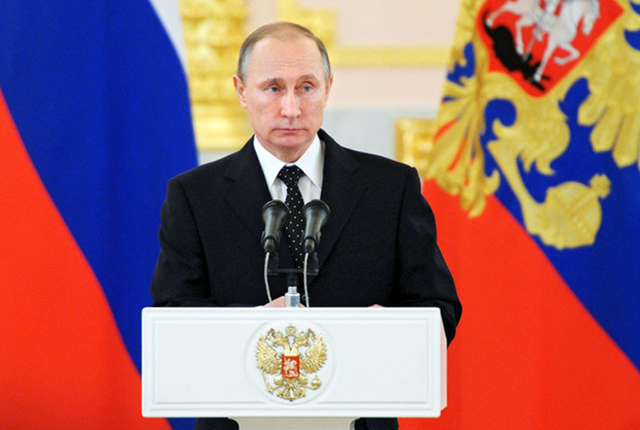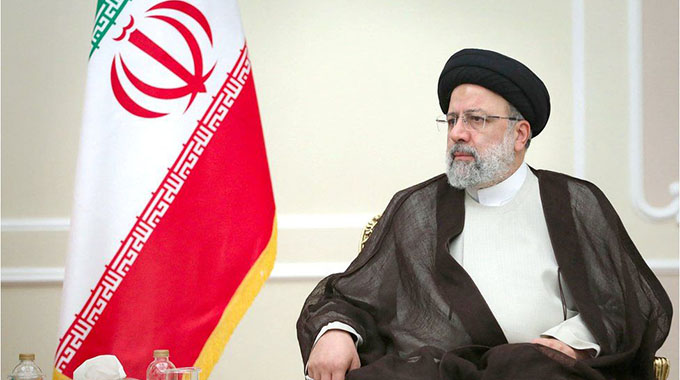Russia spells out new foreign policy

Russian President Vladimir Putin last Thursday, spoke about domestic and foreign affairs, the consequences of the global financial crisis and sanctions, international cooperation and the prospects for various economy sectors in his annual State of the Nation Address to the Federal Assembly – the two chambers of the Russian Parliament, the Cabinet, regional leaders the judiciary and other dignitaries.
During his speech, Putin said that Moscow is ready for dialogue with its international partners, but will not allow them to meddle in its decision-making. “We will not allow any infringement on the interests of the Russian Federation and we will manage our own destiny without tips and unsolicited advice,” the Russian leader said.
He noted, however, that Russia is ready to participate in solving global and regional crises when necessary. “We understand the extent of our responsibility and are sincerely willing to take part in solving global and regional problems, of course, where our involvement is appropriate, necessary, and in demand,” the president stated.
“We are committed to a friendly, equal dialogue, to upholding the principles of justice and mutual respect in international affairs; we are ready for serious discussion on the creation of a stable system of international relations in the 21st century. Unfortunately, in this respect, the decades since the end of the ‘Cold War’ have gone by in vain,” Putin noted, apparently referring to current tensions with NATO and the EU.
He said that Russia stands for “the safety and the possibility of development, not for just the chosen few, but for all countries and peoples, for respect for international law and the diversity of the world”.
In his speech, the president also urged the US to join Russia to jointly fight international terrorism.
“We hope to unite our forces with the United States in the fight against the real threat, not the fictional one – international terrorism,” he said. The president also emphasised the need “to strengthen non-proliferation regimes”, noting that “attempts to upset the strategic balance are extremely dangerous and could lead to a global catastrophe”.
Over 600 journalists, as well as representatives from both Russian and international media outlets, have been covering the proceedings, which took place in the Kremlin. It has been the 23rd such event in Russia’s modern history and the 13th speech delivered by Vladimir Putin.
Also earlier on Thursday, Putin approved the new concept of Russia’s foreign policy. The document updates and revises the key areas, goals and tasks of the country’s foreign policy to reflect the changes on the international arena in the past three years. The new concept aims at raising Russia’s profile in the world, considering difficult, tumultuous period of formation of a new polycentric world system and international changes that have happened since 2013, including cooling of the relations with the West, the ramping up of the integration process in Eurasia and the terrorist threat.
Published on Thursday, the concept is now in force, replacing the previous one that was adopted in February 2013 and is no longer valid now.
Saying that Russia pursues an independent foreign policy based both on national interests and respect for international law, the concept states that Moscow’s policy is “open, foreseeable” and “shaped by centuries” of Russia’s historic role in the development of global civilisation.
“Russia is fully aware of its special responsibility for maintaining security in the world both on global and regional levels, and is aimed at cooperative actions with all concerned states in the interest to solve common issues,” the document says.
Moscow calls for “creation of a broad international anti-terrorist coalition, firmly based on a legal framework, and effective and systematic cooperation among states”, the document says. No “double standards” should have a place in such a coalition, which should become the main force to fight global terrorism.
Moscow stands for the creation of “zones free of nuclear weapons and other types of weapons of mass destruction, especially in the Middle East”, the concept states, adding that “fighting international terrorism is key priority in international security”.
No country should use terrorist organisations to pursue its “political, ideological and other aims”, it says. Political and legal framework for nuclear and other weapons non-proliferation course is key, to avoid risks of such weapons landing in the hands of terrorist organisations.
Russia stays true to its international obligations in the arms control, and expects the same from its partners. Washington’s development of its global missile defense system is viewed as a “threat to national security”, with Moscow “reserving the right to take relevant counter measures”.
“Russia stands for constructive cooperation with the US in the field of arms control, with a compulsory allowance for an inseparable correlation between strategic offensive and defence weapons,” the document says. Global strategic stability should be the key factor in possible further arms reduction, it adds.
Washington and its allies have been pursuing a “restraining course” against Russia, aiming to “pressure” it both politically and economically, the document says, adding that such policy “undermines regional and global security”. It also harms long-term interests of both sides, and goes against a “growing necessity for cooperation” and joint counteraction to global threats.
Russia reserves the right to “harsh” retaliatory measures to “unfriendly actions”, including measures in toughening its national defence. Moscow “is interested in building mutually beneficial relations with the US, taking into consideration the two countries’ responsibility for global strategic stability and the state of international security in general”, the concept stresses, adding that the two nations have significant opportunities in trade, investment, scientific and other forms of cooperation.
The development of dialogue on bilateral relations, as well as on other international issues “is only possible if based on equality, mutual respect and non-interference in one another’s internal affairs”.
Meanwhile, Moscow praises the role of the United Nations in “regulating international relations and coordinating world policies”, saying that there are no other options to replace the organisation in the 21st century.
Among other Moscow’s foreign policy priorities, the concept mentions developing further relations with its eastern neighbours. “Full-scale” partnership and cooperation with China is on the agenda, as well as “further deepening” of strategic partnership with India. With the latter, Russia has always had “privileged” relations, according to the document, which says that the two nations’ cooperation is based on corresponding foreign policies, “historic friendship and deep mutual trust”.
Full text of Putin’s address can be obtained at <http://en.kremlin.ru/events/president/news/53379>









Comments